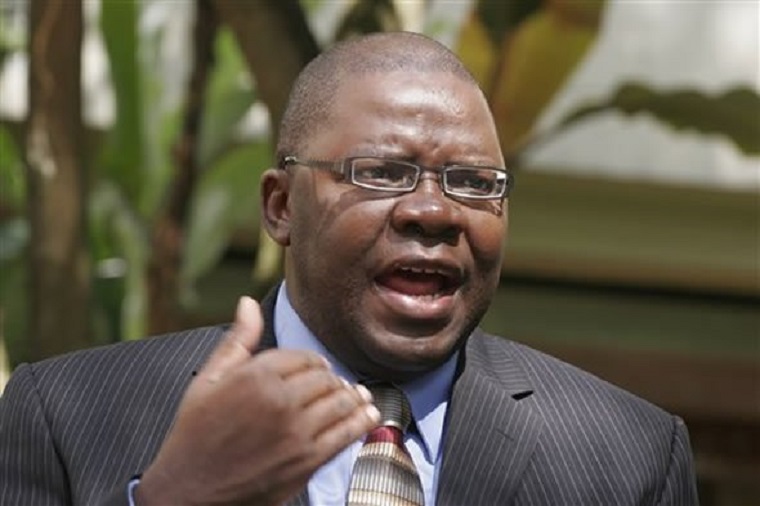HON. BITI: Mr. Speaker Sir, Zimbabwe is a sovereign country that has been independent for 43 years and our GDP is around US$18 billion. For us Mr. Speaker, to sit in this House seeking to ratify a loan of US$15 million, there is something wrong. We are failing somewhere. US$15 million is not even a loan that can be borrowed by Econet, Delta Corporation, LaFarge Cement, Old Mutual, the top listed companies, the blue chip companies of this country; they do not borrow US$15 million. It is petty cash. Small SMEs that want to develop will borrow US$15 million but we are a country. How can we borrow US$15 million? It is an embarrassment; it is absolutely ridiculous that we can borrow US$15 million as a sovereign republic.
Mr. Speaker, let us deal with the fundamental issues that make us borrow US$15 million from this Arab Bank. Let us deal with the fundamental challenges in our economy that reduces us to the embarrassment of our esteemed Minister of Finance, a whole Professor signing a loan agreement of that amount. If it was for him, his business and his bank we would say fine but not for the Republic of Zimbabwe. Mr. Speaker Sir, let us deal with those challenges.
Continued next page
Mr. Speaker, in 1980, the GDP of Zimbabwe was US$7 billion, in 1980 the GDP of Kenya was US$7 billion, in 1980 the GDP of Zambia was around US$3.86 billion. Fast forward, 2023, the GDP of Kenya Mr. Speaker Sir is now US$264 billion, the GDP of Zambia US$64 billion and we are stuck around US$18 billion. Why do we have this developmental deficit; why do we have this growth deficit? Those are the issues that we need to address. I addressed some of them last week when you were sitting on the Chair. We are not united, we do not have a common vision. We pursue politics of exclusion, politics of intolerance and that is the challenge. We beat each other up, we prevent each other from having rallies and meetings, our politics is ugly, that is what we need to address.
Therefore, we have no problem with this loan, the problem we have is we cannot be reduced to such levels of ridiculousness that a sovereign republic, a whole county with a flag and a national anthem can borrow $15 million – that is the challenge we have.
Mr. Speaker Sir, there is also a compliance issue, when the Minister borrows, he must make sure that he synchronises that debt with the rest of the Constitution and the rest of the law. We have a debt cap spelt in Section 11 of the Public Debt Management Act Number 4 of 2015. Section 11 says that the aggregate debt to be borrowed, any loan to be borrowed must be such that it does not increase the national debt to be over 70% of Gross Domestic Product. So the Minister must then come when such a loan agreement is before this august House for ratification – he must show the impact on the borrowing limit in Section 11 of the Public Debt Management Act. So he must show it does not impact on the ratios.
At the present moment, our debt ratio is already 112% of GDP. We are already over by 50%. For Parliament to have a proper debate, the Minister must show that this loan does not infringe Section 11 of the Public Debt Management Act. He must show that the USD15 million does not push the aggregate limit imposed by this Parliament of 70%. In my submission, we are already on 112%. So, the honor is on him to show that this debt fits in with the debt limits prescribed by the Public Debt Management Act. This is so because we are already saddled with unsustainable sovereign debt.
Only last week, we had high powered structured debt meeting in Zimbabwe led by President Chisano of Mozambique, Cde Adesina of the African Development Bank (AFDB), so, the Minister must show the impact of this debt on that process. The only way he can show is how it impacts on the aggregate debt limit spelt out in Section 11 of the Public Debt Management Act.
Therefore, in the absence of those aggregate figures, I submit that this debate is premature but in principle, we have no problem with this loan. We support our farmers, I am a farmer myself, we support this but let us comply with the law and most importantly, let us not be reduced to a begging nation. We used to be a breadbasket, reduced to a begging basket, it is not good enough. I thank you.
(275 VIEWS)


